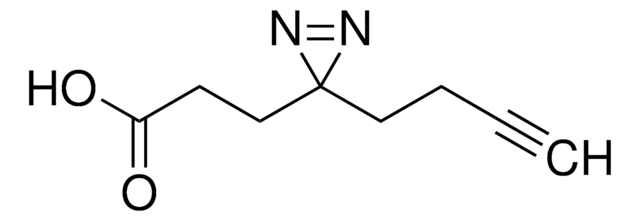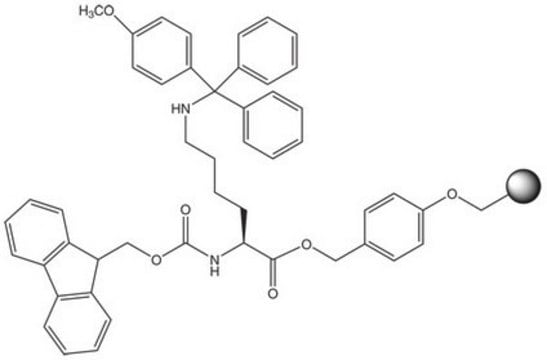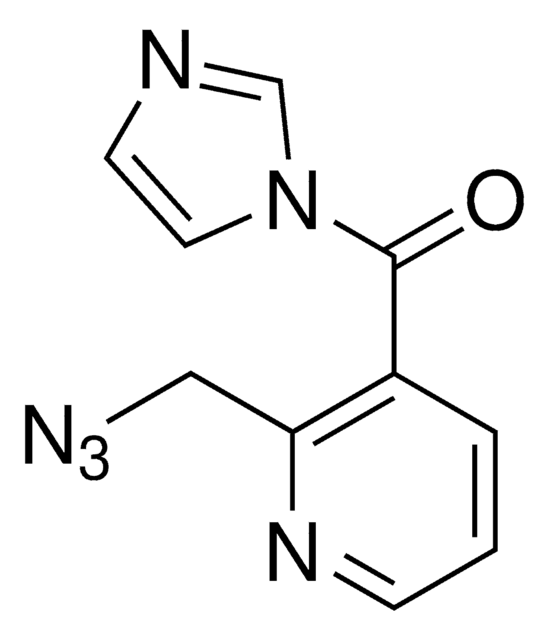907308
(3-(1,1-Difluoro-3-(triisopropylsilyl)prop-2-yn-1-yl)-3H-diazirin-3-yl)methanol
≥95%
Sinónimos:
Hydroxyl diazirine difluoro TIPS-alkyne, MI-PAL, Minimally interfering photoaffinity label, Photo-click tag, Probe building block
About This Item
Productos recomendados
assay
≥95%
form
liquid
availability
available only in USA
storage temp.
−20°C
Categorías relacionadas
Application
Related product
signalword
Danger
hcodes
Hazard Classifications
Self-react. C
Storage Class
5.2 - Organic peroxides and self-reacting hazardous materials
wgk_germany
WGK 3
flash_point_f
Not applicable
flash_point_c
Not applicable
Certificados de análisis (COA)
Busque Certificados de análisis (COA) introduciendo el número de lote del producto. Los números de lote se encuentran en la etiqueta del producto después de las palabras «Lot» o «Batch»
¿Ya tiene este producto?
Encuentre la documentación para los productos que ha comprado recientemente en la Biblioteca de documentos.
Nuestro equipo de científicos tiene experiencia en todas las áreas de investigación: Ciencias de la vida, Ciencia de los materiales, Síntesis química, Cromatografía, Analítica y muchas otras.
Póngase en contacto con el Servicio técnico




![tert-Butyl (R)-3-(2-acetamidopropan-2-yl)-6-chloro-5-methyl-2,3-dihydrospiro[indene-1,4′-piperidine]-1′-carboxylate](/deepweb/assets/sigmaaldrich/product/structures/719/283/e2c466e0-b4df-4961-9844-bfffbe187f3e/640/e2c466e0-b4df-4961-9844-bfffbe187f3e.png)



